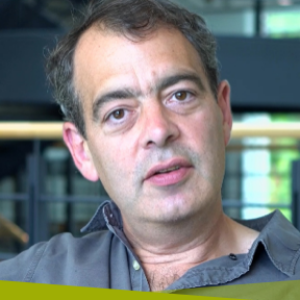
Friday May 30, 2025
David Runciman - Democracy in the age of social media
David Runciman, Professor of Politics at the University of Cambridge, discusses whether the internet and social media help or harm democracy.
About David Runciman
"I’m a Professor of Politics at Cambridge University and Fellow of the Royal Society of Literature. I explore the history of politics and political ideas, and democracy.
My interest is in the history of politics and political ideas and particularly, democracy. Where does it comes from? How different is our democracy from democracy in the past? What might it become in the future? In parallel to my research, writing and teaching work, I hosted a weekly podcast called Talking Politics with 300 episodes between 2016 and 2022."
Good or bad for democracy?
Is digital technology good or bad for democracy? What the age of the internet has shown us is that we often want to get a straightforward answer to a question about some new technology or some new social phenomenon.
But democracy is a complicated set of institutions, values and principles and most complicated phenomena are good and bad for democracy at the same time. I think that’s definitely true of digital technology.
It would be a mistake to assume that it’s all bad. In some respects, digital technology, social networks and social media have been a wonderful enhancement of democracy because a core democratic principle is that everybody should have a voice. In non-democratic systems, authoritarian systems, individual voice is stifled and you have to be a certain kind of person with a certain kind of power or connection to be heard. In a democracy, the ideal is that you can be heard whoever you are. By getting rid of many of the barriers in the way of ordinary people having a voice, this technology has allowed much more access not just to information but to platforms from which people can communicate. And that is a plus for democracy.
But something can be good for democracy and bad for democracy at the same time. We also see that this same technology, in the same moment when it’s giving everybody a voice, is also concentrating power and concentrating voice and authority in narrower and narrower spheres. The platforms on which people are able to communicate are owned by a very, very small number of people, almost all of them men, most of them American, some of them Chinese, who are, relatively speaking, very unaccountable.
The platform that Mark Zuckerberg created, Facebook, gives many ordinary people real access to democratic forms of community. And at the same time, that platform is owned by one person, effectively, who makes the rules and is answerable to almost no one. And it’s the same platform.
So, the same thing can be both good for us and bad for us democratically.
Key Points
• Major social networks and digital platforms give many ordinary people real access to democratic forms of community, but they are owned by one person who makes the rules and is answerable to almost no one.
• The digital information age favours speed and immediacy, but this means we can act impulsively, rather than take the time to come to a collective response.
• Fake news has been around forever, but the emergence of the digital age has enabled the spread of misinformation, and allowed people to only look for news and information that validate their pre-existing beliefs.
No comments yet. Be the first to say something!